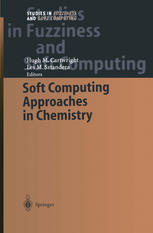

Most ebook files are in PDF format, so you can easily read them using various software such as Foxit Reader or directly on the Google Chrome browser.
Some ebook files are released by publishers in other formats such as .awz, .mobi, .epub, .fb2, etc. You may need to install specific software to read these formats on mobile/PC, such as Calibre.
Please read the tutorial at this link: https://ebookbell.com/faq
We offer FREE conversion to the popular formats you request; however, this may take some time. Therefore, right after payment, please email us, and we will try to provide the service as quickly as possible.
For some exceptional file formats or broken links (if any), please refrain from opening any disputes. Instead, email us first, and we will try to assist within a maximum of 6 hours.
EbookBell Team

5.0
70 reviewsThis book brings together original work from a number of authors who have made significant contributions to the evolution and use of nonstandard computing methods in chemistry and pharmaceutical industry. The contributions to this book cover a wide range of applications of Soft Computing to the chemical domain. Soft Computing applications are able to approximate many different kinds of real-world systems; to tolerate imprecision, partial truth, and uncertainty; and to learn from their environment and generate solutions of low cost, high robustness, and tractability. Presented applications are the optimization of the structure of atom clusters, the design of safe textile materials, real-time monitoring of pollutants in the workplace, quantitative structure-activity relationships, the analysis of Mössbauer spectra, the synthesis of methanol or the use of bioinformatics in the clustering of data within large biochemical databases. With this diverse range of applications, the book appeals to professionals, researchers and developers of software tools for the design of Soft Computing-based systems in chemistry and pharmaceutical industry, and to many others within the computational intelligence community.